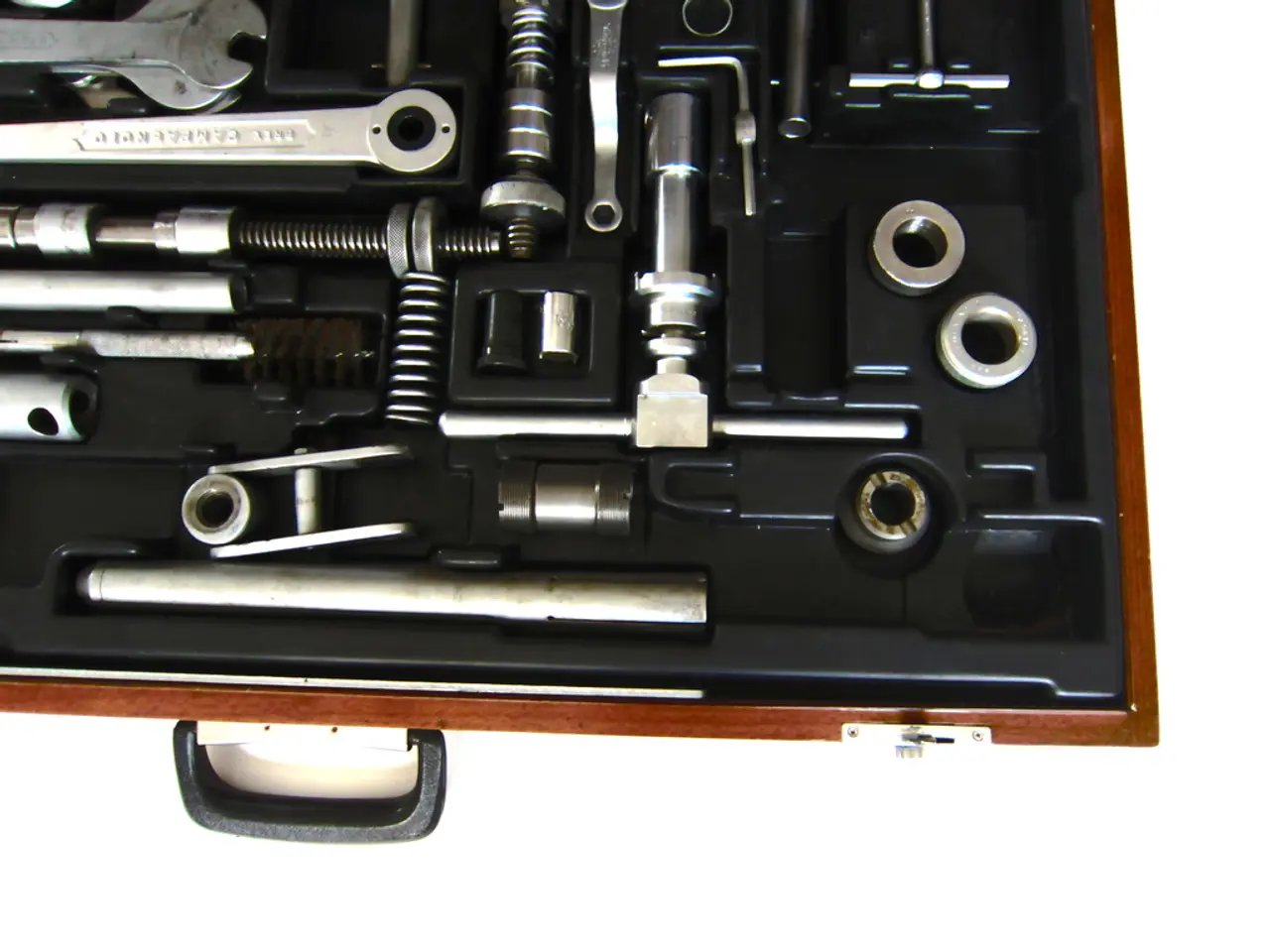Stock Markets in Europe Climbing on Anticipation of Fed Interest Rate Reduction and Earnings Reports Flood
The Eurozone economy is experiencing a slow but cautious recovery, as indicated by a survey showing business activity grew at a slightly faster pace in July compared to June.
The current trend in European business activity presents a mixed picture, with some sectors showing signs of recovery while others continue to face challenges. The service sector, including IT and digital services, has seen a slight increase in activity, with service providers reporting modest growth.
The technology sector, relevant for tech hardware, has shown near stabilization in manufacturing. Factory activity is at its least pessimistic results in three years, as of mid-2025, and rising output is evident. However, new orders remain cautious, reflecting ongoing buyer uncertainty, putting pressure on technology manufacturing.
The fashion sector, part of the broader consumer goods and services space, is likely benefiting from the slight increase in service production. Yet, subdued investment and regional disparities could limit rapid expansion.
The automotive sector, on the other hand, is facing ongoing challenges, with manufacturing output near stabilization but still below growth. Eurostat reports a 0.8% increase in industrial producer prices in June, signaling inflationary pressures that may affect automotive production costs. With exports slightly declining and business dynamics remaining fragile, the automotive sector is likely facing cautious demand and cost pressures.
Overall, Europe's economy is projected to grow by 1.3% GDP in 2025, but risks such as tight monetary policy and uneven recovery across countries persist. New business formation declined in early 2025, indicating some uncertainty, especially in major countries like the Netherlands, Romania, and Spain, while others like Cyprus and Lithuania see growth, showing a regionally uneven business environment.
In the stock market, there have been significant movements. Gerresheimer shares jumped nearly 3 percent due to plans to separate its struggling moulded glass division. Swiss staffing company Adecco lost 2 percent after reporting modest revenue growth in its Q2 2025 financial results. Eurozone producer prices rose 0.8 percent in June compared to May, while automotive parts maker Continental declined 1.3 percent after posting lower Q2 sales.
Silver miner Fresnillo advanced 7.6 percent after posting a nearly fourfold increase in first-half net profit. France's CAC 40 edged up by 0.2 percent, and British building materials supplier Travis Perkins jumped 6.5 percent after reporting an increase in pre-tax profits during the first half of its financial year.
Chipmaker Infineon Technologies surged 4.7 percent after reporting solid Q3 performance and lifting guidance for operating profitability. Smith & Nephew shares soared 15 percent due to announcing a $500 million share buyback after reporting better-than-expected earnings for H1 2025.
Copper producer Aurubis climbed 3.3 percent as core earnings for the first nine months of the year beat forecasts. Fresenius Medical Care, the world's largest dialysis provider, tumbled 3.4 percent after reporting quarterly results below expectations. Rational AG gained 2.2 percent after posting improved Q2 results and backing its annual sales revenue growth outlook.
The German DAX gained half a percent, and the pan European STOXX 600 is up 0.3 percent at 542.13. Pizza delivery specialist Domino's Pizza Group plunged 14 percent after cutting its annual profit guidance. Fashion group Hugo Boss soared 7 percent on reporting a slightly better-than-expected quarterly operating profit.
Energy giant BP Plc rose 2.2 percent after it returned to profit in the second quarter. Spirits maker Diageo climbed 6.5 percent despite annual profit tumbling almost 30 percent. The U.K.'s FTSE 100 is up 0.3 percent.
The HCOB Eurozone Composite Purchasing Managers' Index rose to 50.9 from 50.6 in June, indicating a slight improvement in business conditions. Despite the mixed signals across sectors, the overall business environment shows a slow but cautious recovery, with inflation moderating slightly, companies stabilizing output, but business registrations declining, indicating structural challenges and moderate optimism.
The technology sector, particularly tech hardware manufacturing, is exhibiting a near stabilization, with factory activity at its least pessimistic results in three years as of mid-2025, but new orders remain cautious, indicating ongoing buyer uncertainty, putting pressure on technology manufacturing.
In the stock market, chipmaker Infineon Technologies surged 4.7 percent after reporting solid Q3 performance and lifting guidance for operating profitability, suggesting positive sentiments towards the technology sector.




